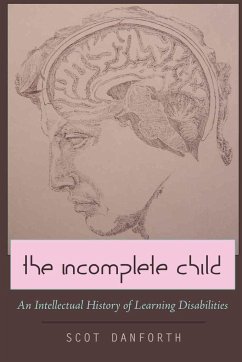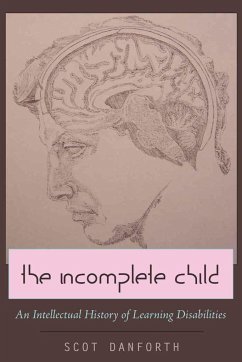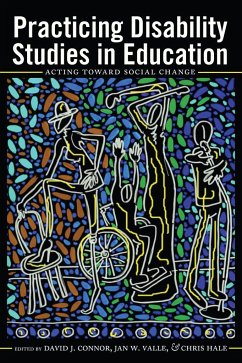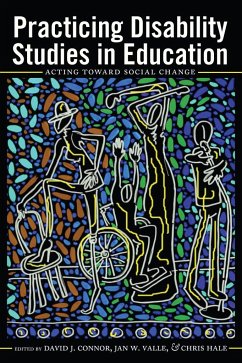
Reading Resistance
Discourses of Exclusion in Desegregation and Inclusion Debates
Versandkostenfrei!
Versandfertig in 6-10 Tagen
36,55 €
inkl. MwSt.

PAYBACK Punkte
0 °P sammeln!
Reading Resistance confronts longstanding exclusionary practices in U.S. public schooling. Beth A. Ferri and David J. Connor trace the interconnected histories of race and disability in the public imagination through their nuanced analysis of editorial pages and other public discourses, including political cartoons and eugenics posters. By uncovering how the concept of disability was used to resegregate students of color after the historic Brown decision, the authors argue that special education has played a role in undermining school desegregation. In its critical, interdisciplinary focus on ...
Reading Resistance confronts longstanding exclusionary practices in U.S. public schooling. Beth A. Ferri and David J. Connor trace the interconnected histories of race and disability in the public imagination through their nuanced analysis of editorial pages and other public discourses, including political cartoons and eugenics posters. By uncovering how the concept of disability was used to resegregate students of color after the historic Brown decision, the authors argue that special education has played a role in undermining school desegregation. In its critical, interdisciplinary focus on the interlocking politics of race and disability, Reading Resistance offers important contributions to educational research, theory, and policy.














